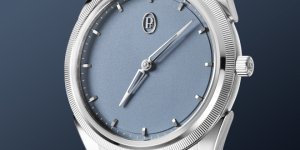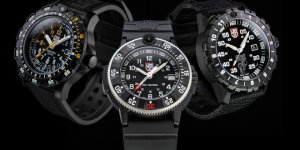Omega celebrates the first human flight to orbit the moon with a new Speedmaster
Flip side of the moon
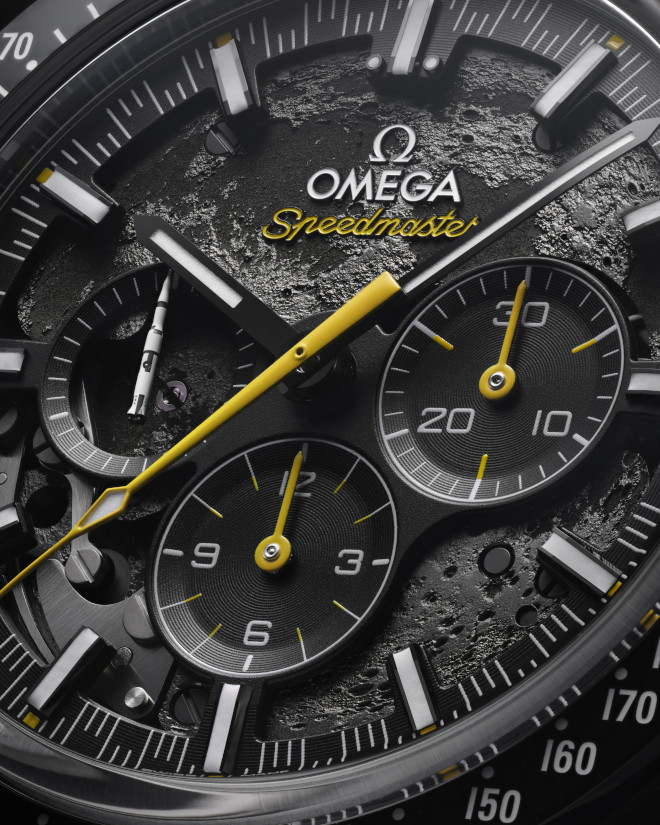
Despite how large the sun appears in our sky, the moon is the closest celestial body to Earth. And for thousands of years, it has remained a great source of intrigue for all civilisation. One year before man was able to set foot on the moon, however, in 1968, Apollo 8 became the first ever human flight to orbit Earth’s only natural satellite. More than 50 years ago these pioneering astronauts were the first human beings to experience the dark side of the moon and it has been well documented that all of them wore Speedmasters.
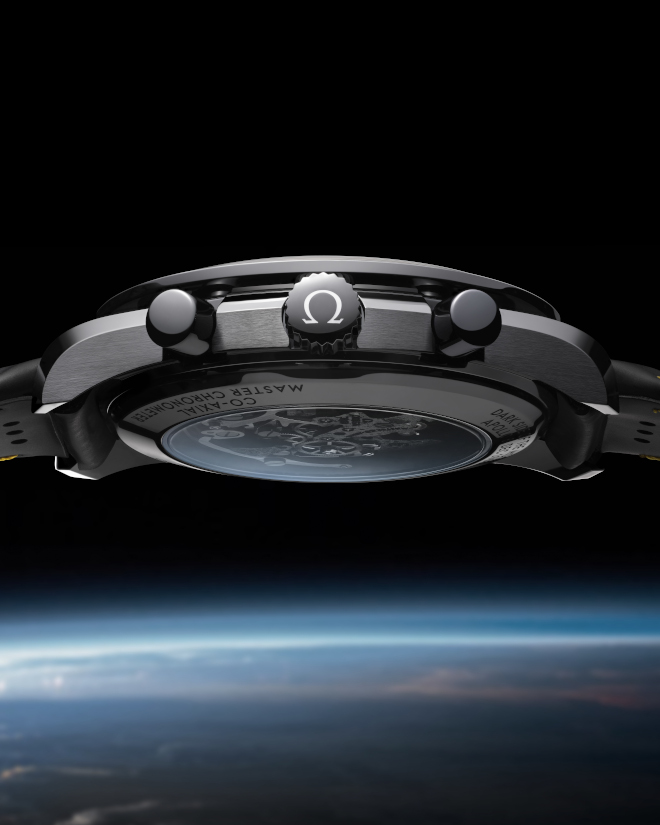
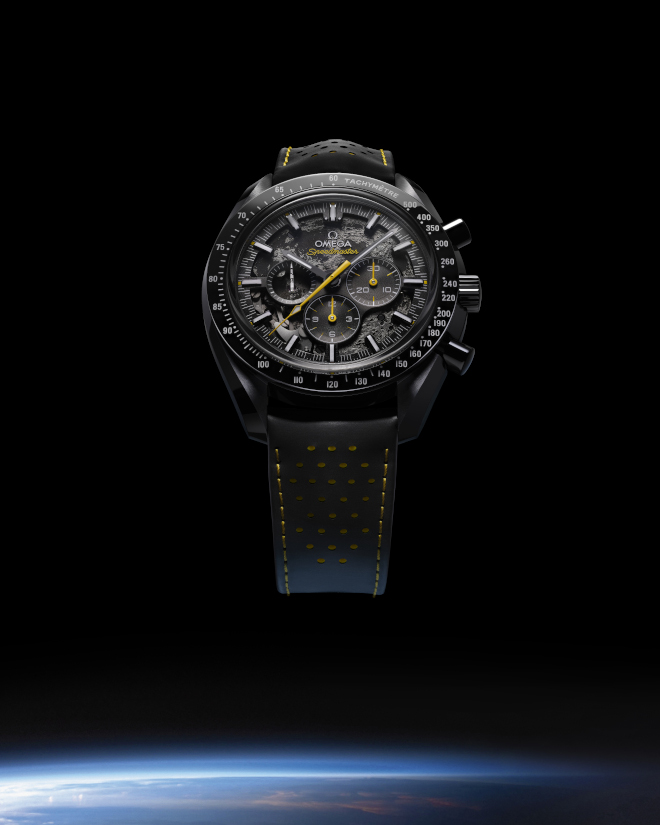
To celebrate this milestone for humanity, in 2018 Omega launched the first Speedmaster Dark Side of the Moon Apollo 8 and this year they have updated the watch with even more mooninspired details. The most noticeable of which is the relief of the moon’s surface that you will find on the dial side of this watch. Fantastically, on the back of the movement, Omega has also created a laser-ablated moon relief on the blackened mainplate and bridges. While the dial side represents the view of the moon as seen from Earth, on the back, through the transparent caseback, one will see the other side of the moon.
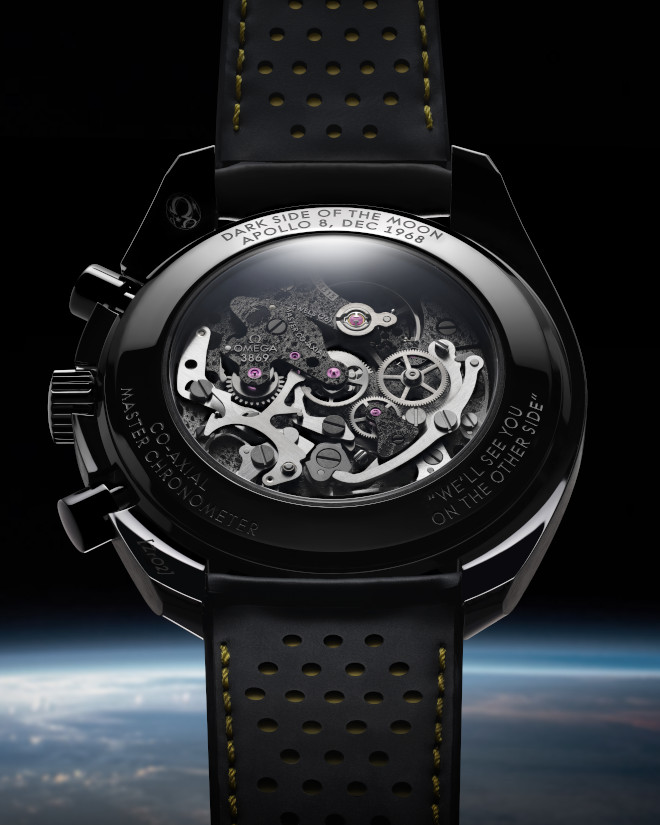
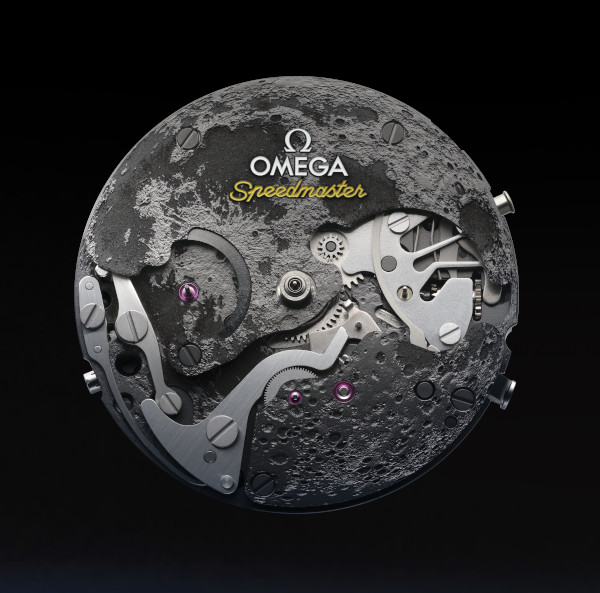
Interestingly we only ever see one side of the moon even though the moon itself rotates on its own axis. This is due to a phenomenon called tidal locking where the gravitational pull of the Earth adjusts the moon’s spin so that it is in perfect sync with the rotation of Earth. Therefore, it was only when Apollo 8 orbited the moon, that we managed to catch a glimpse of the “far side of the moon” as it is often called.
The other cool feature, and I think most posted on social media, is the fact that instead of a traditional small seconds hand, Omega has managed to swap it out for a tiny little rocket modelled after NASA’s Saturn V. As the seconds tick away, this little rocket spins around on the subdial almost as if it is weightlessly floating in space. This tiny little miniature also has a patent-pending status because it has been engineered from grade 5 titanium, sculpted via a laser turning process and the colours were achieved through white varnish, ablation and laser blackening. Talk about high tech.
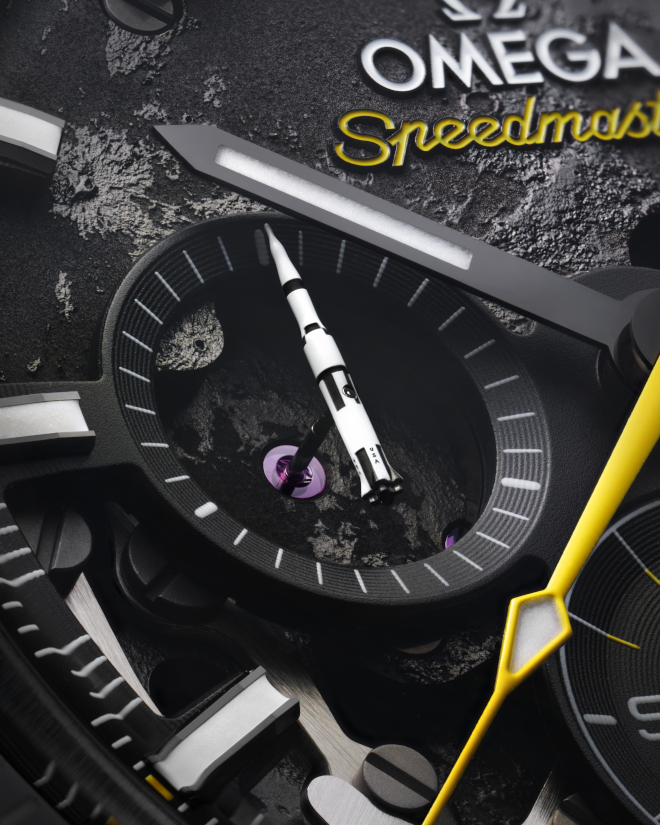
As for the case, it is made from black ceramic along with an anodised aluminium dial which is fitting with this whole aerospace theme. Its lightness, at only 99 grams, is also welcomed because even though the movement is a manualwinding Calibre 3869, it still sits quite hefty on the wrist at 13mm high and 44.25mm in diameter.




